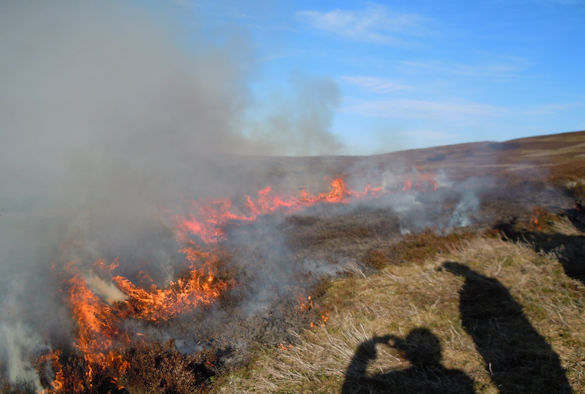Emeritus Professor Rob Marrs, from the University’s School of Environmental Sciences, has given evidence to an All-Party Parliamentary Group (APPG) debating the best way to manage the risks of wildfires.
The APPG, organised by the Game & Wildlife Conservation Trust, sought to address a number of questions including what is the best way to reduce the risk of damage and injury from wildfires and how can the level of preparedness for wildfires be improved.
Professor Marrs, an expert in moorland ecology, recently published findings of a 60-year study on prescribed burning in Teesdale. Published in Nature Geoscience, Professor Marr’s research found that prescribed burning, if carried out on a sensible rotation, can reduce fire fuel loads, protect against more severe ecosystem damage, allow better access for fighting wildfires and promote faster recovery post-wildfire.
At the APPG, he explained the importance of good factual evidence in deciding on the beneficial role that shooting and farming management can have in reducing wildfire risks.
He said: “Controlled burning will not stop wildfires but makes firefighting easier and safer, reducing damage and encouraging faster vegetation recovery after fires. While this controlled burning will inflict some damage on the moorland system, I feel that some damage here is better than substantial wildfire damage.”
Also appearing at the APPG, Simon Thorp, chairman of the England and Wales Wildfire Forum. He said: “We need to manage the land in the face of a year-round threat. There are risks of fatalities, risks to public health, biodiversity and carbon storage.”
Clifton Bain, a director at the IUCN UK Peatland Programme, also spoke to the APPG. He said: “Restoration of peatland is mainly about bringing the water table back up, and once re-wetted, these bogs are part of the wildfire control system for moorland areas.”
